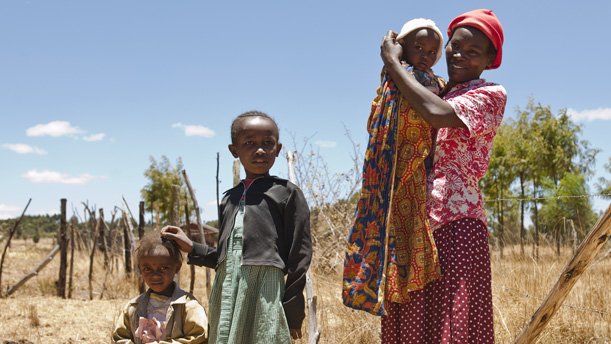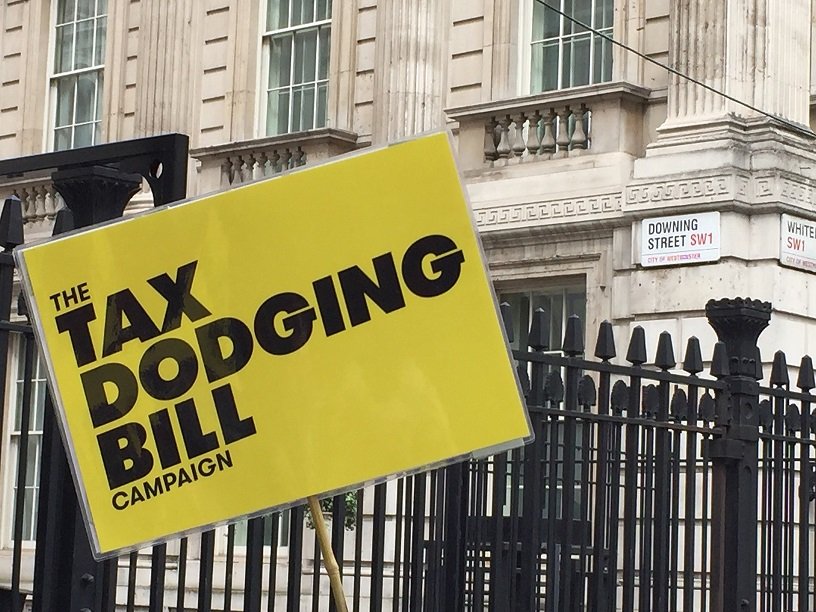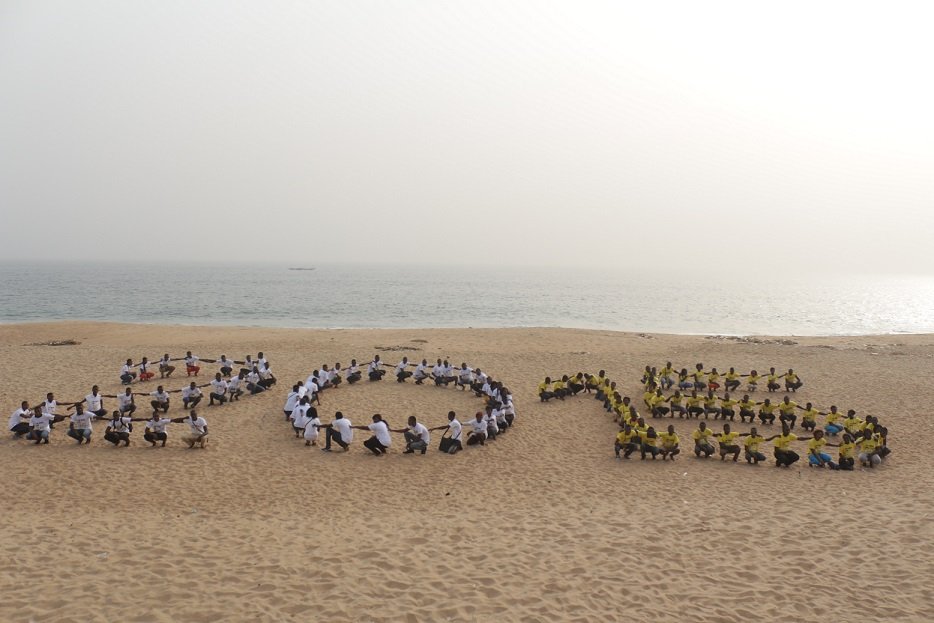Every 15th of the month, Action/2015uk invites you to join in making a noise about 2015 - a very important year for people and planet. Join the conversation on Twitter.
With the election over and 3 crucial global summits coming up this year, we asked some Action/2015 members in the UK the following question:
“What should David Cameron do to tackle extreme poverty & inequalities around the world?”
To make the most of the unique opportunity we have this year to end extreme poverty within a generation, here are just a few of the key things David Cameron and our new government can do in 2015...

1. Fight for women & girls’ rights
In every country in the world women and girls still face discrimination and the denial of their rights simply because of their gender. They are excluded from influencing and participating in decisions which affect their lives, are affected most severely by extreme poverty and inequality, and lack the basic services and infrastructure needed to live safely and healthily.
One in three women globally will experience violence in their lifetime, and discriminatory social norms often mean women are disadvantaged across all areas of their lives. Unlocking 50% of the world’s potential is not only a matter of justice and human rights; it also has a massive impact on progress towards sustainable development. Where women’s voices are heard, and girls get as good an education as boys, poverty is reduced, and communities become more resilient.
So, Prime Minister, please ensure that the UK’s international aid budget is directed towards addressing gender inequality and realising women’s rights. Please ensure that development programmes actively involve women in deciding what the priorities are. And please ensure that all our influence is brought to bear on changing the cultural beliefs, practices, laws and structures which drive and help legitimise inequality.
Maria Vlahakis, VSO on behalf of Gender and Development Network
2. Invest in water & sanitation (WASH)
If 2015 is to be a pivotal year for the world’s poor, we need the UK to be a real world leader to help make it happen
Giving people access to clean water and safe toilets opens the door to a better future. It enables girls to return to school freed from the drudgery of walking miles to fill the family's jerry cans, it means children grow up protected from the diseases that would stunt their growth and potential, it frees up women to find work and spend more time with their family. And that is just the start.
So why is it that the UK Government currently spends only 2% of its aid budget on taps and toilets compared to 20% for health and 13% for education?
We would like to see that 2% figure increase by at least 1% every year over the next parliament - as a result spending on health and education would have much greater impact.
A huge proportion of health centres are without clean water or toilets, and consequently they cause as much disease as they cure.
Many schools do not have safe toilets and so often children, particularly girls once they reach puberty, drop out.
Without more investment in water and sanitation, we will never achieve a future where people everywhere are healthy and able to fulfil their potential so it’s also vital that the UK Government supports a dedicated Sustainable Development Goal to bring water, sanitation and hygiene to all by 2030. Let’s make it happen!
Fiona Callister, WaterAid UK

3. End Corporate Tax Dodging
Corporate tax dodging is unfair: nearly everyone loses out when tax rules allow big companies to avoid paying their fair share. But some of the biggest losers are developing countries. A lot of the big corporations that operate here in the UK also operate in developing countries, and it’s a sad fact that because of legal loopholes, developing countries lose as much as $160 billion dollars a year.
For example, Ghana’s School Feeding Programme feeds around one million pupils a year at a cost of $32 million. The programme is currently funded by the Dutch government, but if Ghana could recover the $36 million in taxes it loses from the mining sector each year, it could pay for it itself. Tackling tax avoidance has the chance to transform lives.
Before the election, David Cameron's Conservative Party manifesto promised to tackle tax avoidance, but it was not clear on how he would do this. The new UK Government needs to use its first 100 days in office to introduce a Tax Dodging Bill; a bill that would make it hard for big corporations to exploit legal loopholes and would raise billions here and abroad. Over 75,000 actions have been taken by the UK public to call for a Tax Dodging Bill, will you be next? Visit http://taxdodgingbill.org.uk/ and help end corporate tax avoidance once and for all.
Paul Abernethy, Global Poverty Project
4. Do everything in his power to zero child deaths…
David Cameron has the power to create a world where the next generation can not only survive but thrive. A world where the number of children dying from preventable causes is zero, not 6.3 million. A world where children going hungry is nothing but a memory. A world made possible if UK Government works with global leaders, governments, communities and non-governmental organisations to stop at nothing to see it become a reality. He must focus efforts on following to make it happen;
Investing in and ensuring access to health
A recent study found that increasing annual health spending by just $5 per person until 2035 in 74 countries could prevent the deaths of 147 million children and 5 million women, as well as 32 million stillbirths. Yet current investments in health in many countries are neither sufficient nor equitable. More than 1 billion people cannot access the health services they need, either because the services are unavailable or unaffordable.
Ensuring nutrition for all and with special focus on the first 1,000 days
Under-nutrition remains the biggest cause of preventable deaths of young children, responsible for almost half of the 6.6 million under-5 child deaths in 2012. The first 1,000 days of each child’s life, during pregnancy and up to age 2, form the critical foundation on which their potential built.
Investing in immunisation
Many infectious diseases that kill millions of children are easily preventable through timely immunisation. Children must be immunised early in life, starting from the first week after birth and with completion of the full schedule before the first birthday.
Ensuring all births are registered
Registering children at birth is the first step in securing their recognition before the law and safeguarding their rights. Children without official identification documents may be denied healthcare or education. Counting and reaching the most vulnerable children is vital.
Geeta Bandi-Phillips, World Vision

5. Ensure we make the most of 3 crucial summits this year...
In the last generation we made more progress in reducing poverty and improving the lives of millions of people across the world than during any other period in history. This wasn’t an accident, it happened because the world focussed and came up with a plan to take action against the poverty we knew was preventable.
This year, world leaders will decide on a new global plan to tackle poverty, inequality and climate change at three major summits: the Financing for Development Conference in Addis Ababa in July, the UN General Assembly in New York in September and the Climate Change Summit in Paris in December. Combined, it’s no exaggeration to say that these summits could determine the future for the planet and the people on it.
The effectiveness of these summits will depend on the political leadership shown by countries such as the United Kingdom. David Cameron has already invested significantly in the success of the agreements proposed this year. His continued leadership – including ensuring attendance at the highest level – can help make this the year that changed the world.
Jack Wilson, Save the Children UK